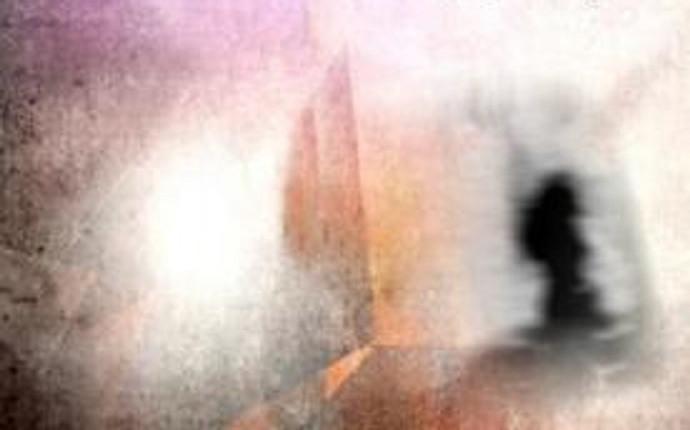‘Mount Qaf’ by Müge İplikçi

‘Mount Qaf’ by Müge İplikçi, translated by Nilgün Dungan (Milet, 168 pages, $17)
According to Islamic legend, Mount Qaf is a mythical mountain dividing the realm of humanity from the realm of the spirits. In a popular exhibition currently ongoing at Istanbul’s Arter gallery, feminist artist CANAN uses the legend to conjure a unique, phantasmagorical world of spirits in which the subconscious and the real are blurred to dizzying effect.
 In her novel of the same name, Turkish author Müge İplikçi uses the myth of Mount Qaf to speculate on a hellish present, presenting a vision in which with the boundary separating life and death is removed. In “Mount Qaf,” spiritual and other-worldly resonances are juxtaposed with the political context of the U.S.’s War on Terror after the invasion of Iraq.
In her novel of the same name, Turkish author Müge İplikçi uses the myth of Mount Qaf to speculate on a hellish present, presenting a vision in which with the boundary separating life and death is removed. In “Mount Qaf,” spiritual and other-worldly resonances are juxtaposed with the political context of the U.S.’s War on Terror after the invasion of Iraq.
The novel was first published in Turkey back in 2008 and was translated into English in 2014. But by then it already must have already felt very dated – a period piece reflecting a particular era and its concerns. Jarring with the ethereal associations of the myth, the book is at times bludgeoningly unsubtle.
It centers on the protagonist Emel, a young journalist who is trying to track down Zahide, a Pakistani friend she met while studying in the United States. Through her investigation, she learns that Zahide has been arrested as part of a shady CIA rendition program, and has in all likelihood been given a new identity in a clandestine project with mysterious aims.
The book takes the form of a psychological thriller girded by political twists and turns. Emel tumbles down the rabbit hole as she investigates torture carried out in the rendition program, examining testimonies given by suspects plied with various drugs. “I’d become obsessed with the idea of tracking down Zahide, almost an illness … My suffering just worsened as time went by,” she says. “Everyone believes in something. Some people want to save the world, and others may go off in search of battles with windmills. But I had made my choice; I would be that heroine, and continue in my search for Zahide, clinging to my hope that I would find her. I knew the beginning of the story, and I had a right to know the end.”
Along the way Emel meets various symbols of U.S. malfeasance in the shape of authoritative men bluffing their way obscurely through elegant sleight of hand. The character of Richard – a journalist at the Washington Post who teaches in Emel’s university department - is a sinister archetype: A liberal hypocrite whose cynical ideology underpins all the mistaken assumptions of the age.
Unsurprisingly given the material, the dialogue is often clunking. Emel remembers predicting a coming War on Terror back when she was together with Zahide at university: “This is the nineties. We’ll have to wait and see. I fear that the power of regular people’s dreams will turn into the power of military dreams and phantoms. The huge military here isn’t training for world peace. Soon, very soon, that dream will become a reality and it’s going to be bloody as hell.”
Kneejerk anti-Americanism may have seemed satisfying in 2008, in the white hot context after the Iraq invasion. But today the U.S. under Trump is more grimly absurd, more easily dismissed as a geopolitical buffoon rather than an omnipotent hegemon. In the end, the personal psychological trauma depicted in “Mount Qaf” fails to compensate for its heavy-handed political parable.
* Follow the Turkey Book Talk podcast via iTunes here, Stitcher here, Podbean here, or Facebook here, or Twitter here.










